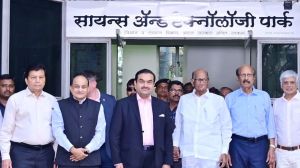The Rs 6000 trap
The U.R. Rao committee has set the price. If all goes to plan, the best of engineering or management degrees India has to offer can be acqui...

The U.R. Rao committee has set the price. If all goes to plan, the best of engineering or management degrees India has to offer can be acquired for a flat rate of Rs 6,000 a year. The human resource development ministry had constituted a panel under Rao, a former chairman of ISRO, to examine technical education in India. Drawing statistical parallels with the US and its universities, the panel concluded that our students are being fleeced. They calculated annual tuition fees at leading American universities as a percentage of that country8217;s per capita GDP, and recommended that the yearly fee in India be no more than Rs 6,000. Wonderful. A dose of algebra, and higher education will once again acquire a social conscience.
If only it were that simple. The challenge is to maintain critical levels of excellence in India8217;s institutions of higher learning 8212; and to simultaneously open up access to wider demographic groups. Yet, to formulate blanket subsidies is to fail to heed decades of post-Independence experience. An abiding achievement of these decades is a network of elite institutes like the IITs and IIMs that provide facilities and instruction at a par with the best in the world 8212; and which further enable scholars to leverage their training for rapid career advancement. These institutes, with a student base which private and public sector companies are keen to woo and with a network of highly successful alumni keen to contribute to their alma mater8217;s coffers, do not need subsidies. They need independence to innovate and improvise to stay at the cutting edge. At the most their students, with promising careers ahead, simply need financial aids like loans to cover tuition costs. Lower down on the higher education pyramid lie technical institutes in need of assistance 8212; in terms of budgets and faculty. The government would well to focus its attentions and resources on them.
Else, the HRD ministry would invite familiar charges of using the cover of socialistic goals to gain control of elite institutions. Just last month, IIM, Ahmedabad, refused a government grant of Rs 10 crore, arguing that other schools may be more needy and implying that monetary temptations could involve bargaining away its autonomy in setting curriculum and admitting students. The Rao committee would be better off inquiring into these nuances.
- 01
- 02
- 03
- 04
- 05































